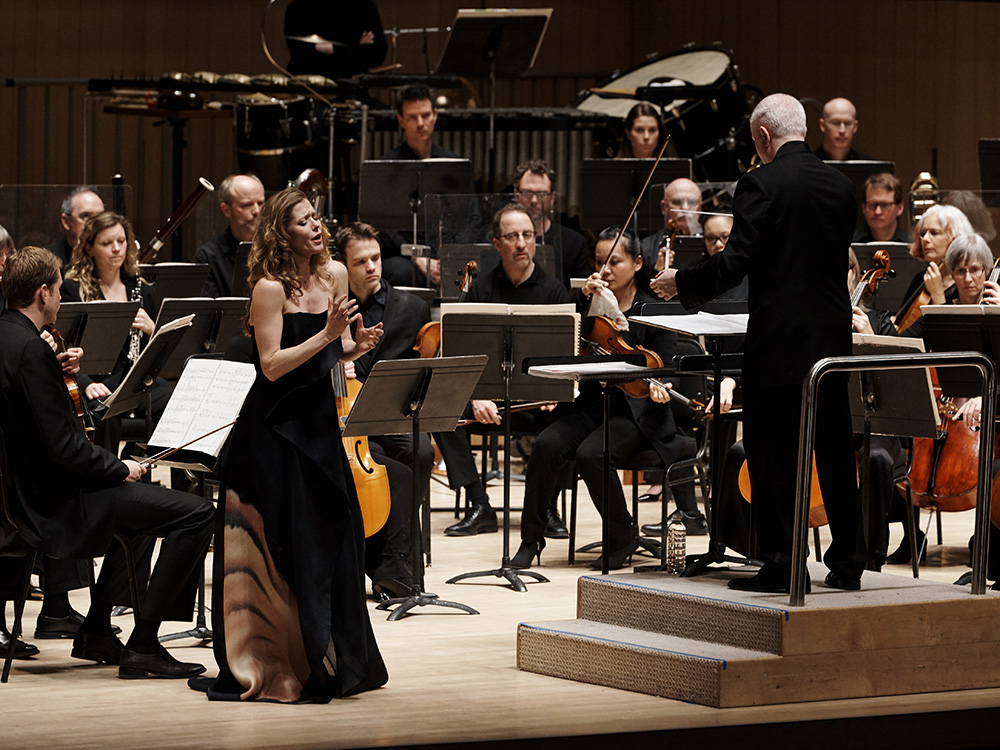
[Originally published in the Toronto Star]
Toronto Symphony Orchestra, New Creations Festival, Saturday, March 7, 2015, at Roy Thomson Hall. George Benjamin composer and conductor.
It’s early March, which means it’s time to step out of the winter boots and into a season where the air no longer hurts your face. This time of year also marks the annual New Creations Festival, which included one of the most-talked-about and hippest operas going: Written on Skin by British composer George Benjamin.
And while most of us are still sore from launching heaps of snow over our neighbour’s fence, it didn’t stop a good turnout, which bodes well for Toronto’s opera lovers and new music community.
Inspired by a 12th-century southern French legend of the troubadour Guillaume de Cabestanh, the opera premiered in Aix-en-Provence in 2012 and centres around a cruel land baron (the Protector), played by baritone Christopher Purves.
The brutish character immortalizes his patriarchal legacy by commissioning a boy (played by countertenor Bernhard Landauer) to write a book about him. But as the pages are written, so too, were they written on the skin of Agnès, the Protector’s wife, performed by soprano Barbara Hannigan, a brutally diminished spouse undermined by her husband’s maniacal chauvinism.
This is a villain of the highest order, who tells Agnès what to say, when to say it and — worst of all — what to call herself. The “perfect” book starts to have an unexpected effect on Agnès, who develops a corporeal lust, prompting the Protector to become jealous and to serve up the boy’s sweet, salty heart for dinner, which Agnès unwittingly eats.
The entire thing is marvellous and the best part is Martin Crimps’s libretto, which carries the juicy drama like Caligula through Rome.
At the heart on the opera, if you can forgive the pun, is a thriller made powerful by a master combination of sound and text. Think Bernard Herrmann and Gyorgy Ligeti meets Anton Chekhov and Tennessee Williams. It’s a dinner party to end all dinner parties. As if Hannibal Lector hired a ghostwriter and then ate his heart with some fava beans and a nice chi-an-ti. (fuf fuf fuf fuf …)
Purves’s near-perfect baritone dripped with emotive power and countered Hannigan’s tremendous vocal and acting presence — chilling, even. And chilling because her plight reminds us that the practice of human exploitation hasn’t really changed at all since the 12th century.
Countertenor Landauer shined brightly, as did Krisztina Szabo and Isaiah Bell as the chorus of angels, who pry into the marital action.
Benjamin conducted with authority and the Toronto Symphony Orchestra responded with tight, passionate playing.
Sprinkled throughout the orchestra were unusual instruments, such as glass harmonica, mandolins, river rocks and a viola da gamba. Each provided interesting hues to the sound pallet and helped create a distinct sound to the filmic score.
On the whole, this is surefire opera, and reminds us that tradition is not to preserve the ashes, but to pass on the light.
We were all left holding a torch for something, which — if it can maintain momentum — just might become a new classic.
- THE SCOOP | Royal Conservatory’s Dr. Peter Simon Awarded The Order Of Ontario - January 2, 2024
- THE SCOOP | Order of Canada Appointees Announced, Including Big Names From The Arts - December 29, 2023
- Ludwig Van Is Being Acquired By ZoomerMedia - June 12, 2023



